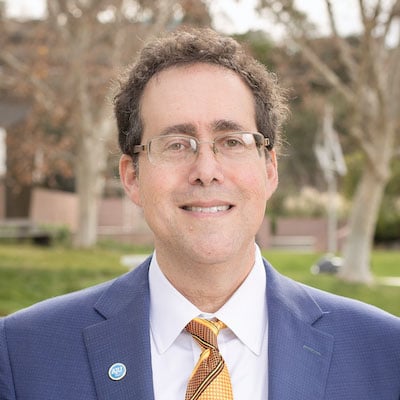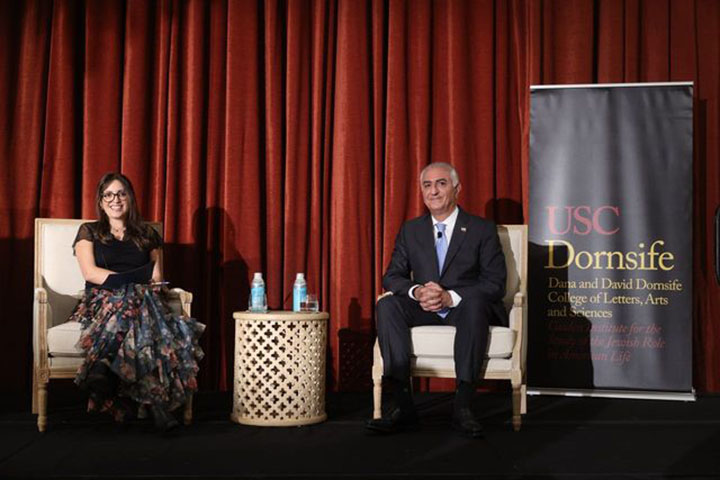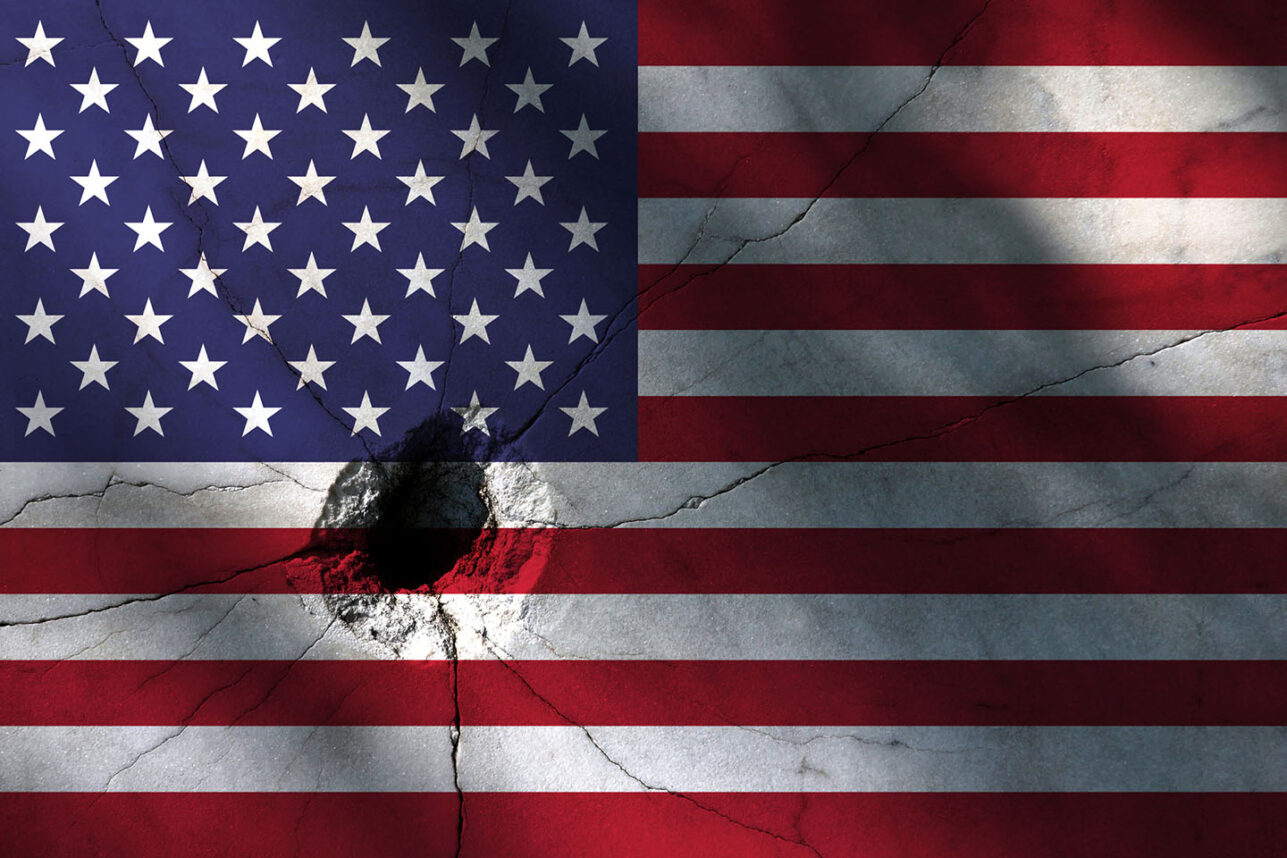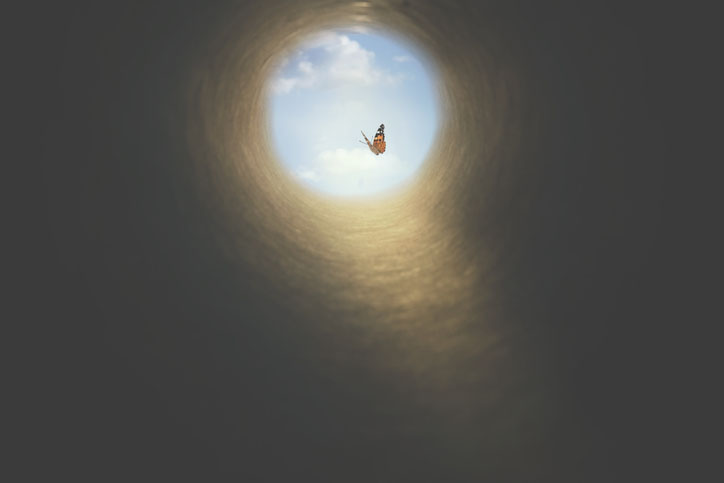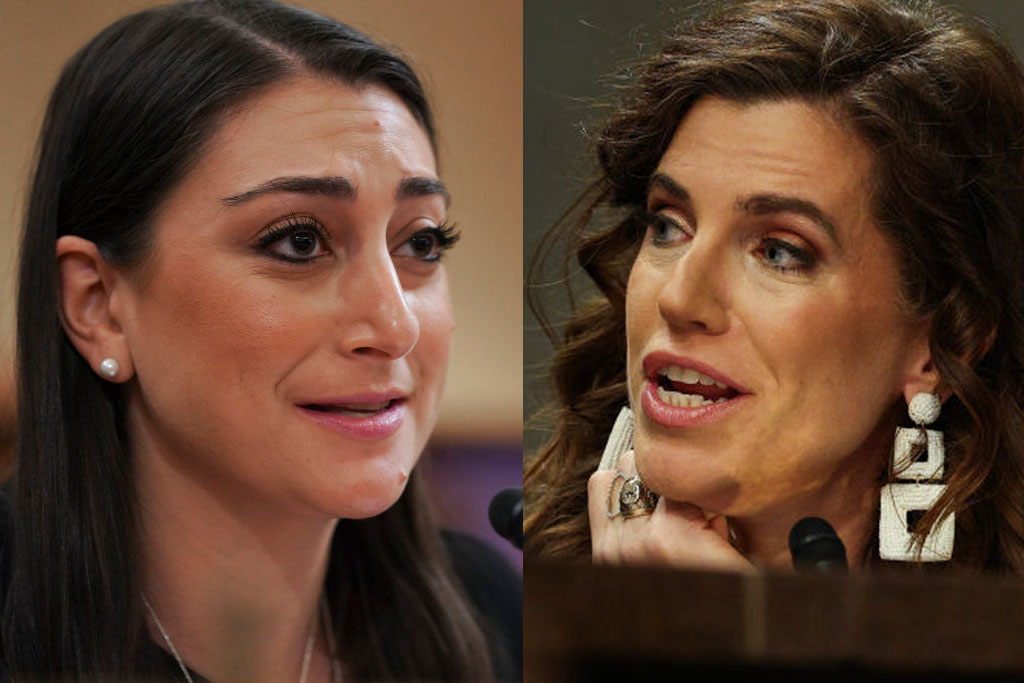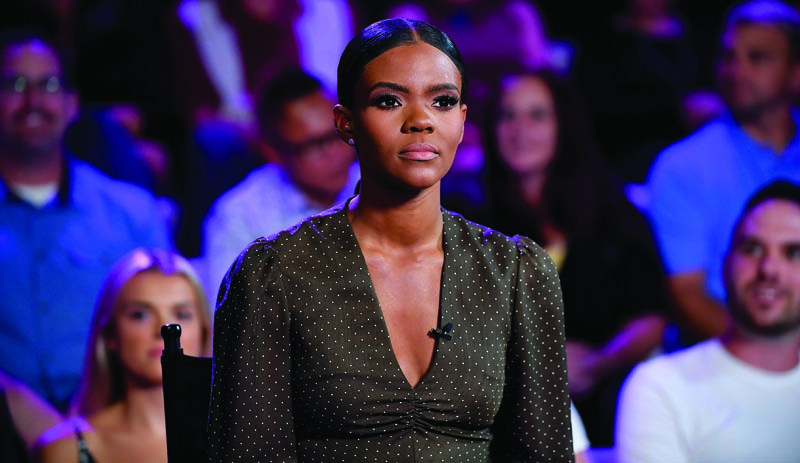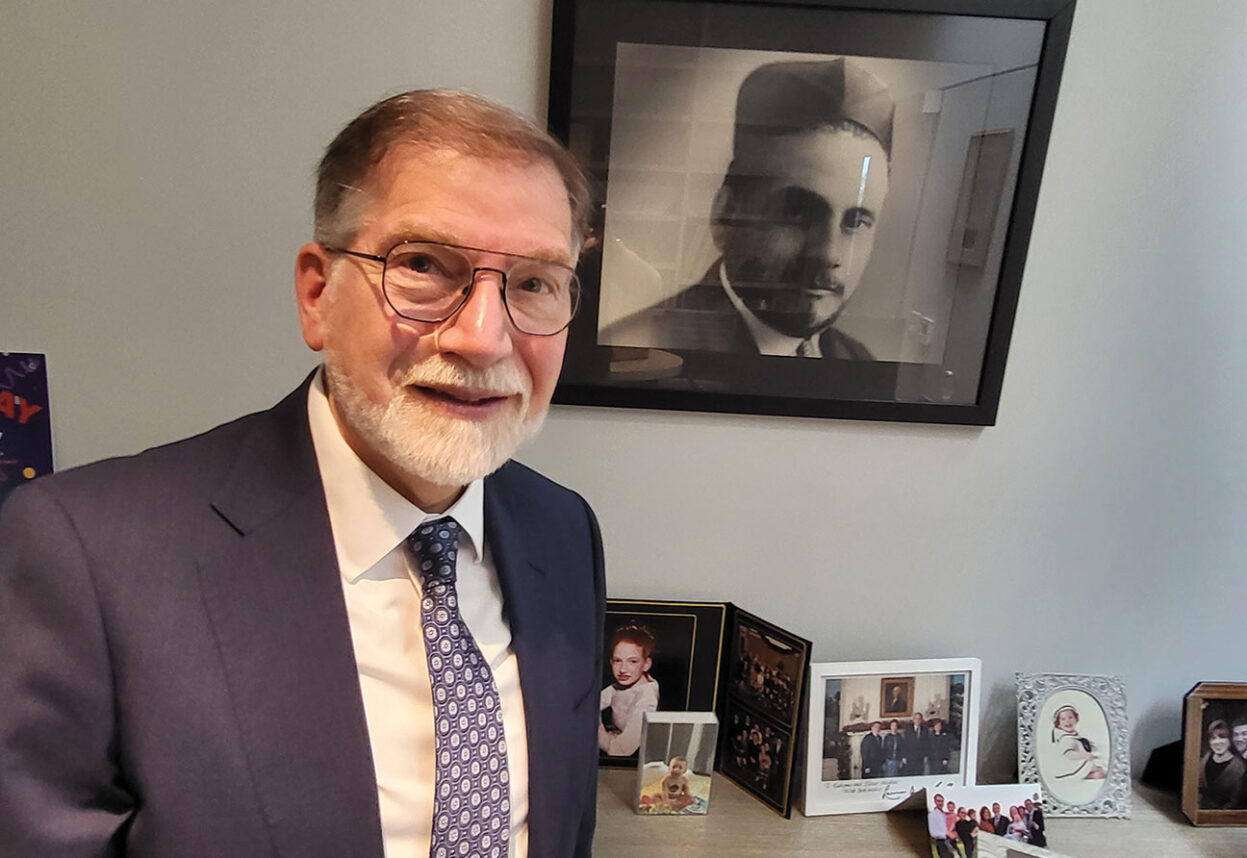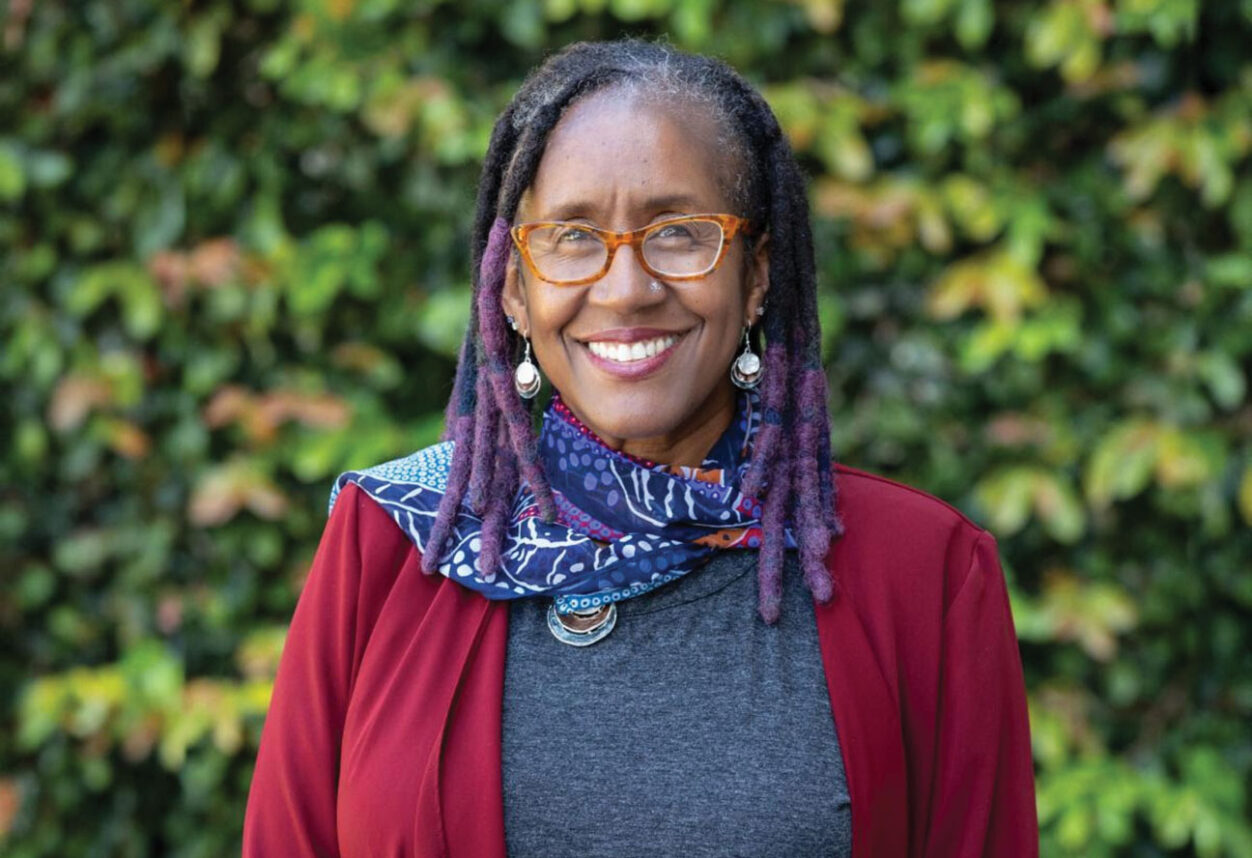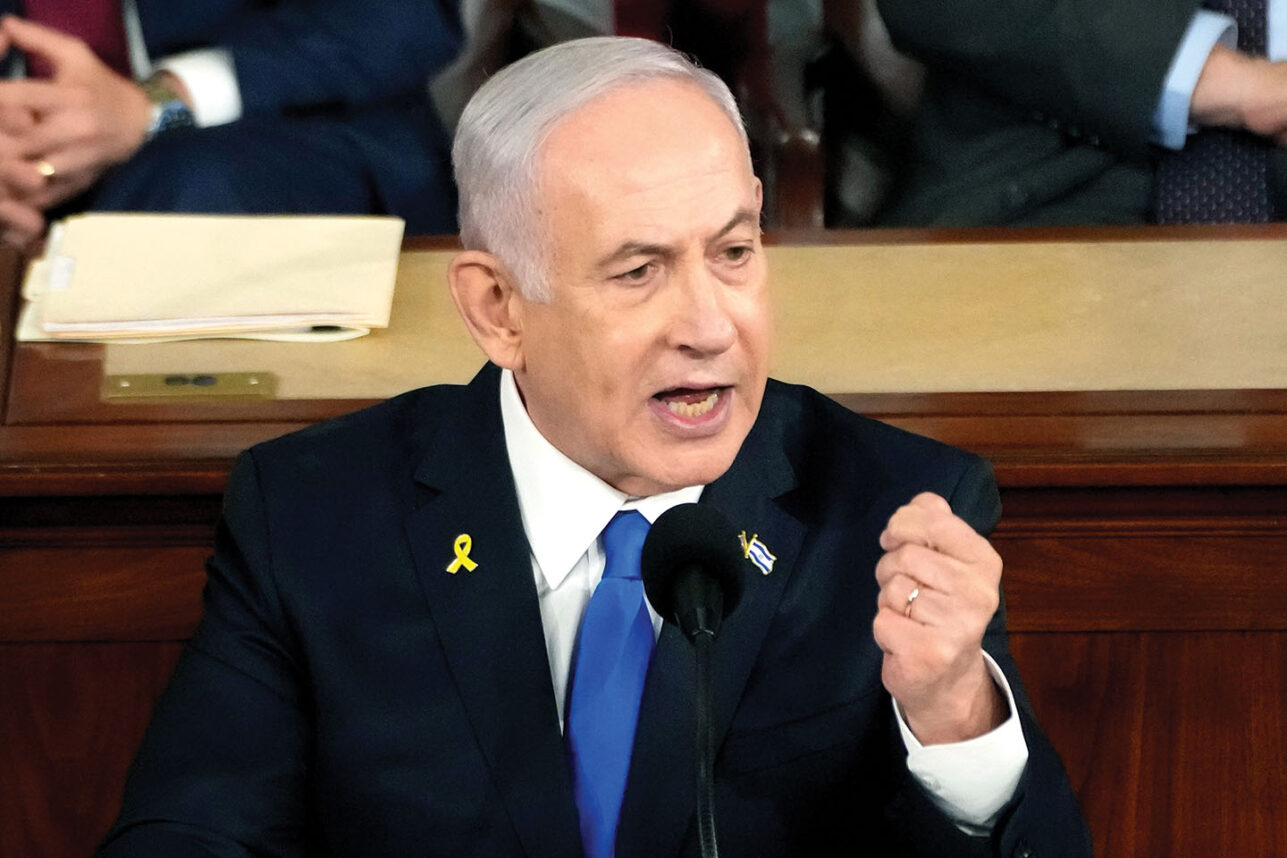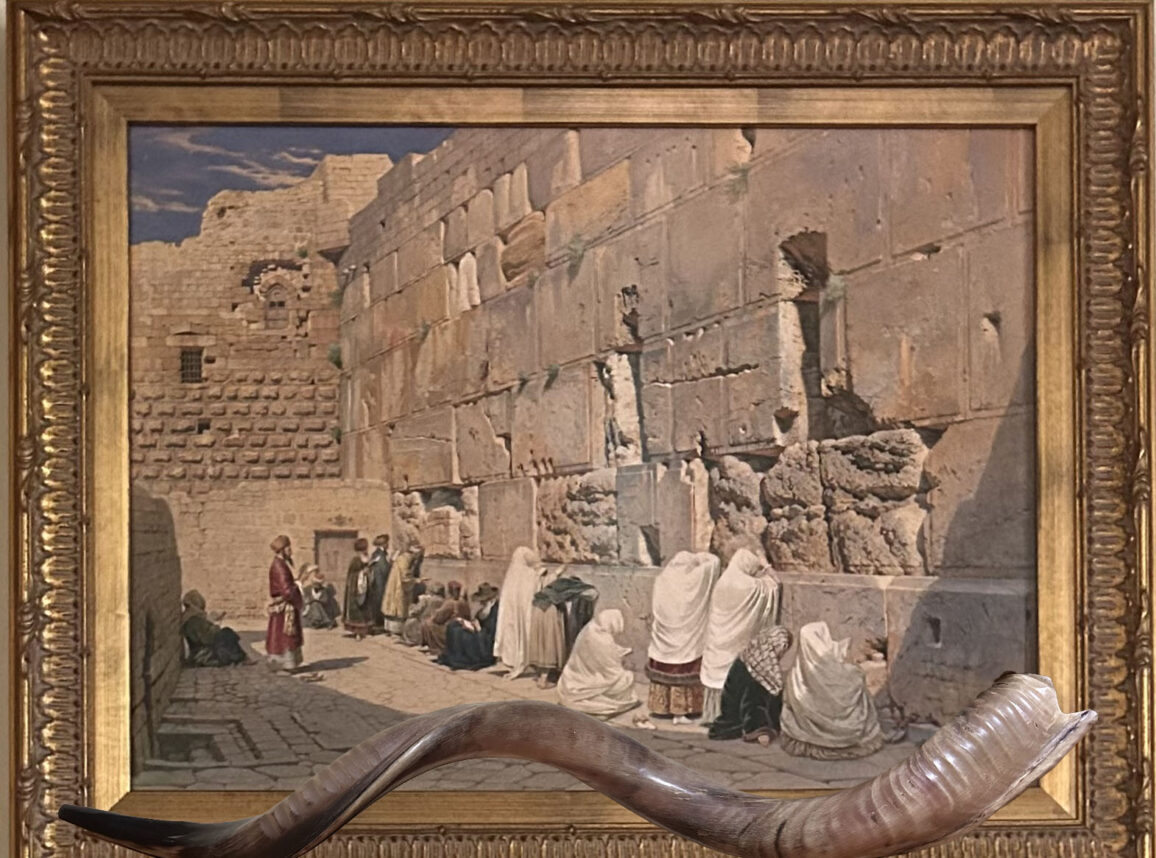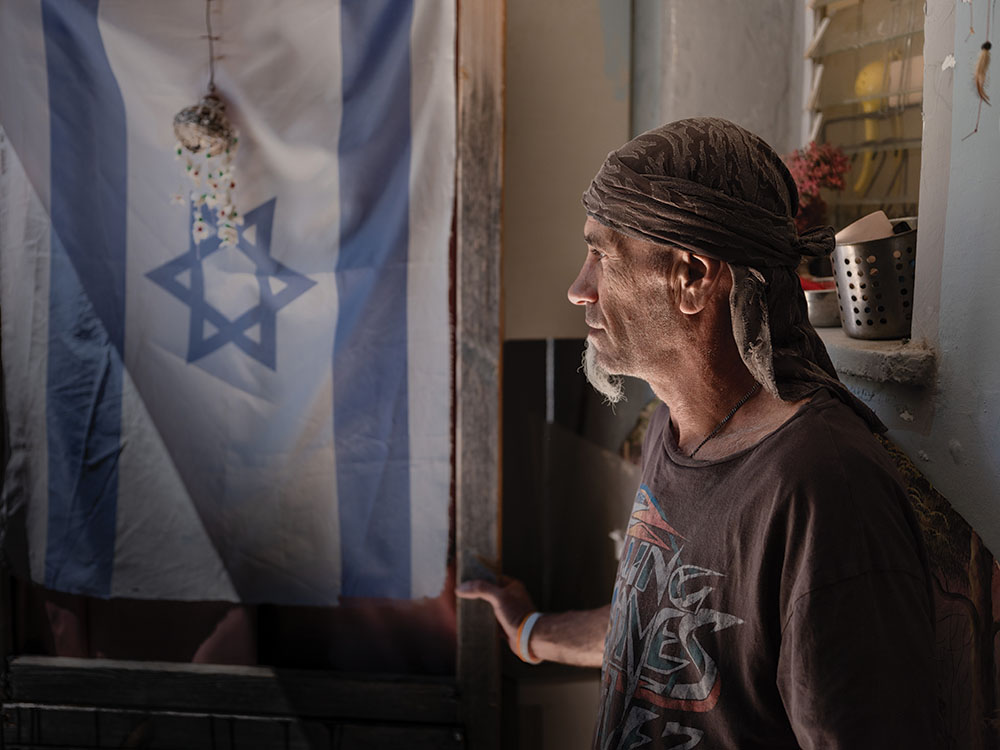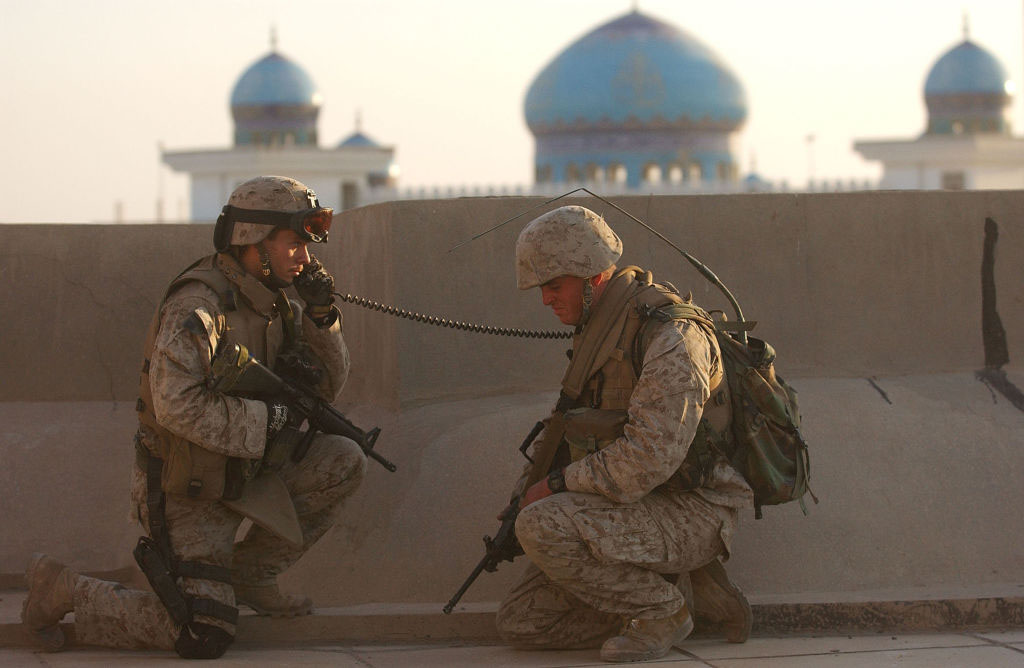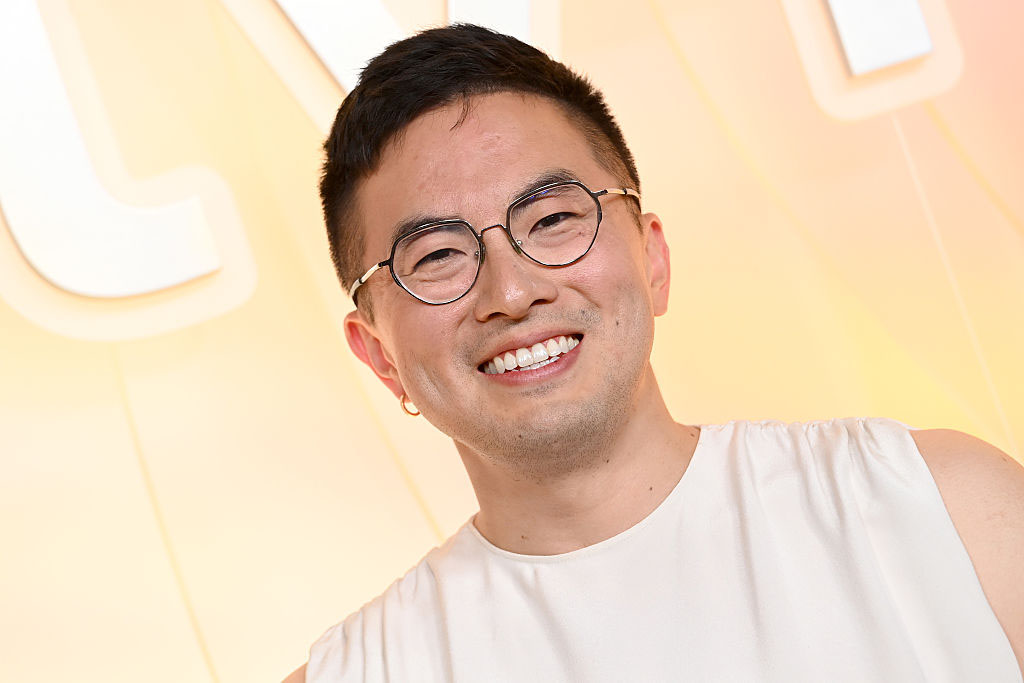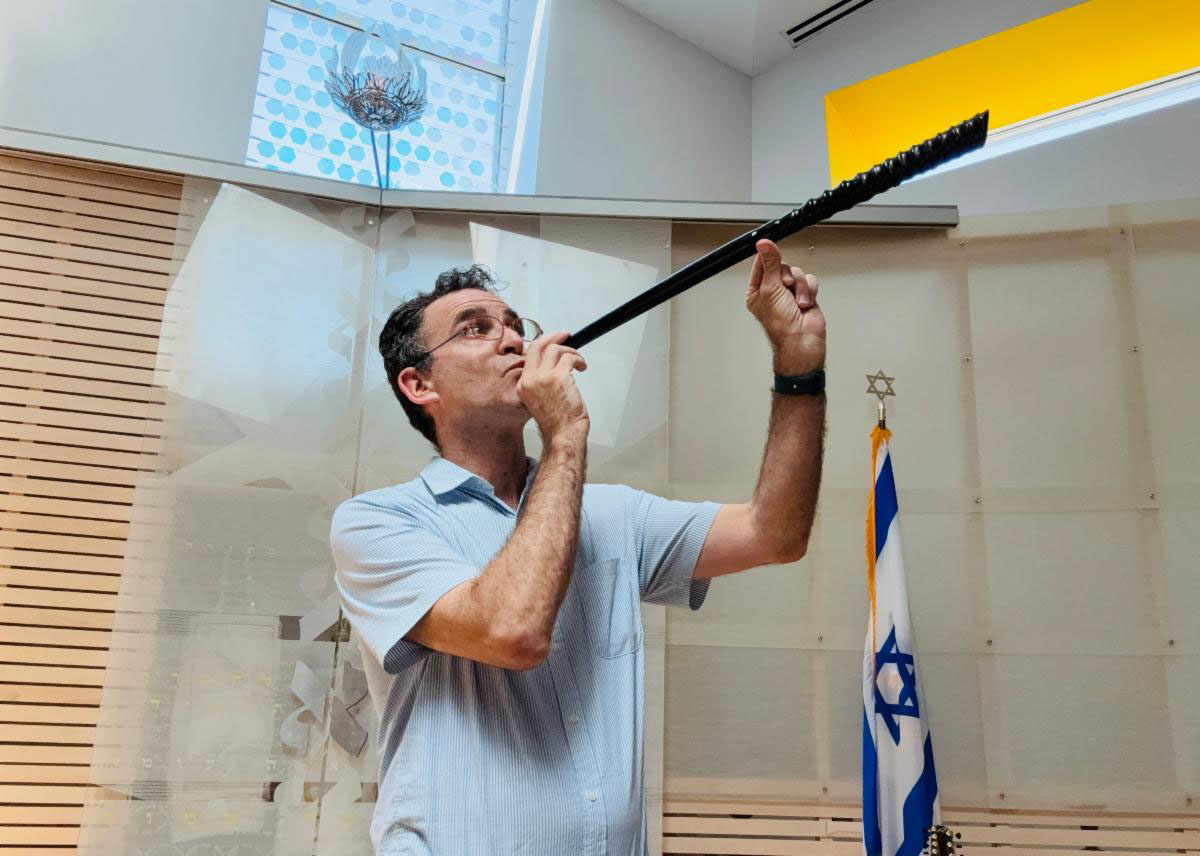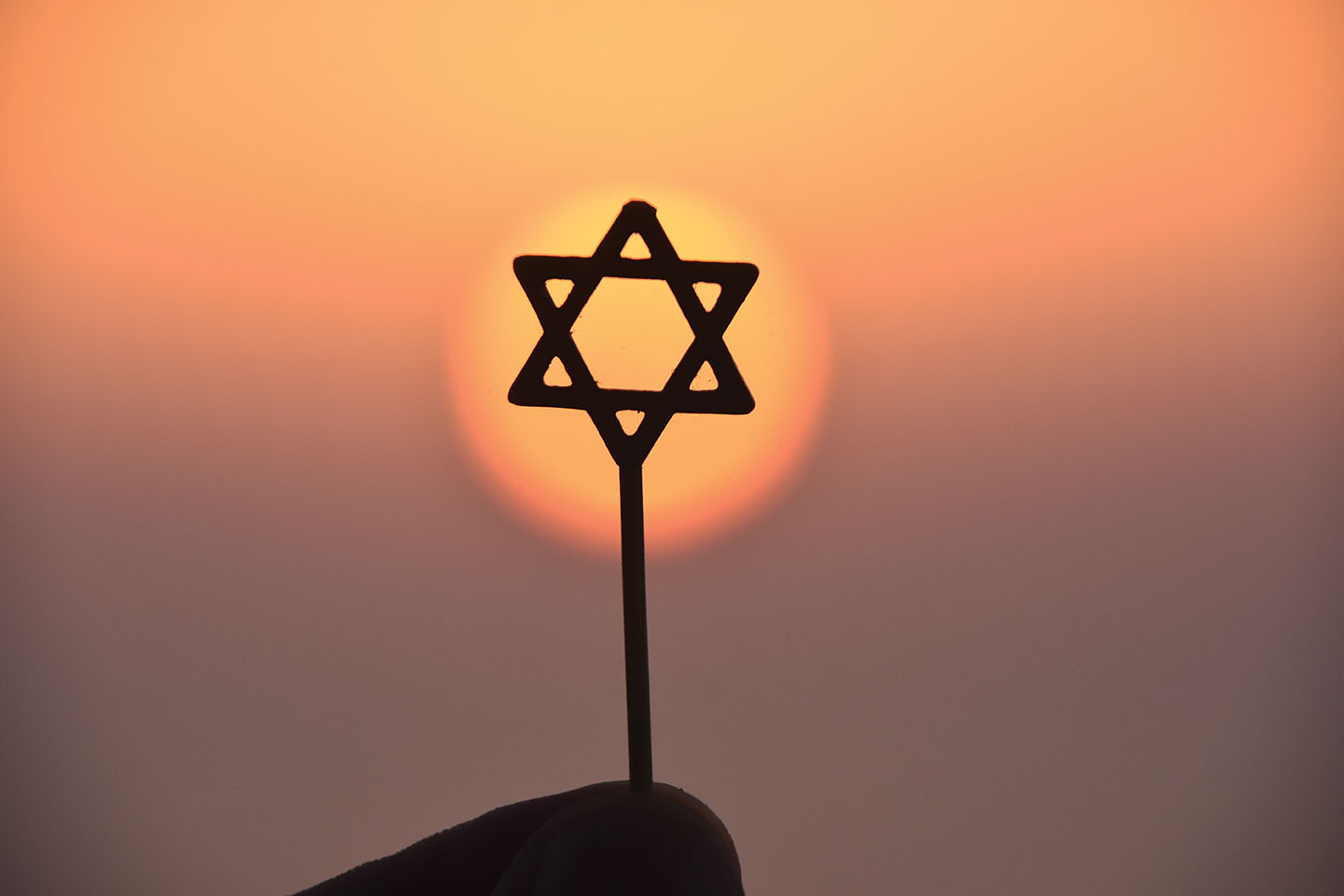
In a topsy turvy world, antisemitism has burgeoned, incidents of Jew hatred have exploded over the past two years, and a pervasive sense of being threatened, demonized, and caricatured haunts many of us. It is precisely at such times that we resist the temptation to catastrophize. We must mobilize to fight the hate and distortions, yes. But we also would do well to remember the many ways we Jews continue to enjoy a unique and positive role in America, and to use that asset for the benefit of all.
A story from a couple years ago will help drive the point home. Most years, the ordination of the Ziegler ordination is held on a Monday night. But the only thing more powerful than this unbroken tradition is my daughter, Shira, who that year graduated from Ithaca College, which you know is in upstate New York. A piece of advice to Los Angeles parents, if you want to be sure that your children move home after college: send them somewhere very, very cold and very, very rural.
But here’s what I want to share with you about Ithaca College and its graduation ceremony. There are not a lot of our people there, if you know what I mean. Like there’s basically no landsmen, no MOTs. At that graduation ceremony, I saw only one kippah, and that was only when I took aerial selfies. Of course, being a Jew in a place where there are not many Jews leads people to respond to you in unusual and piquant ways.
Like, for instance, at a gathering of the women’s crew team on which my daughter is a coxswain, (that’s the person who shouts at everybody else). She turned a lifelong character default into a valuable leadership asset. Somebody from across the room saw my kippah and felt the need to tell me that they’ve always loved the Jewish people. In fact, they assured me, they teach in a school, and every year in December they make a point of bringing one of those candelabra. And they teach people about Hanukkah as well as Christmas because it’s so important that we should all love each other, isn’t it?
And it is.
But my favorite moment of the graduation ceremony came about as a result of the College honoring with an honorary doctorate, the remarkable playwright Tony Kushner.
He was given five minutes to speak, and he stuck to his deadline. His talk was brilliant and brief. At the reception afterwards, someone came over to me and told me that they were 79-years-old and they had never heard a better graduation speech. And I said, “yeah, it was pretty good.” They looked at me with some confusion, then told me their name. So I responded with my own, “Brad Artson.” And he brushed it off, now with some annoyance.
Then he proceeded to tell me that he’s a great admirer of my plays.
Now, I’m a rabbi, so my job is to let people believe what they want. So I just responded by noting that the concept of that angel with wings was a stroke of luck.
But here’s the serious lesson I learned from my time in upstate New York: We Jews are a strange and exotic creature. We are odd, we are unusual, we are slightly magical, and we are wonderful. This gentleman came up to me with genuine affection and admiration for us. (He just couldn’t tell us apart).
The question that his assessment of us raises is what is the appropriate set of values and practices to cultivate a Judaism that is also strange, slightly weird, magical and wonderful. That is where our strength and vitality remain. It is where they have always been found.
There are some voices out in the world, Jewish and Gentile, who try to force us to cower in fear, to hide behind a Judaism of boxes and walls, a Judaism on retreat, a defensive sort of Judaism in which we put our energy into trying to minimize our losses.
But that’s not the Judaism that those sincere and well-meaning people looked at me and saw. They saw weird, and wonderful, and magical. So, my invitation to us all is: can we rise to give them what they want? Can we live a Judaism that is open and bold and boundary-crossing and brave and world- shattering and world-shaping?
Can we offer the world a Judaism that does not cower in fear, that does not assume a defensive posture, but proudly speaks to the world because we have wisdom, community, and vision that the world still needs?
Can we offer the world a Judaism that does not cower in fear, that does not assume a defensive posture, but proudly speaks to the world because we have wisdom, community, and vision that the world still needs?
We are not alone. The model exists in our own Scripture. I think of Joseph in Egypt being that expansive Jew. Imagine the stories he was told! And he was one shrewd visionary who achieved some remarkable breakthroughs. I think of our Queen Esther and how she was able to mobilize our people and to bring allies to the table to fight an unjust decree.
And I think of the greatest of them all, our Rabbi Moses, who wandered in diaspora his entire life saying the corrupt power of pharaohs always will crumble, so long as we are willing to march out and to split seas. The example of Moses reminds us, don’t stand too close to the palace. Don’t become attached to the glory and the pomp. It will fall. But we, a people wandering, pledged to a God we do not see with our eyes, but intuit with our hearts, graced with an ancient text of love, justice, and yearning, we will see the empires rise and crumble and rise and crumble and will outlast them. But only if we are true to who we are meant to be.
I think of the values that move us in the world and that I hope move you as well. “Some trust in chariots, some in horses, but we devote ourselves to the Holy One, our God. “
I think again of Joseph. “Now therefore, let Pharaoh select someone discreet and wise. And Pharaoh said to his servants, can we find such a one as this, a person in whom the Spirit of God resides?” Discreet and wise and filled with the Spirit of God, that is who we are called to be. That is who we are invited to be. That is what the world expects us to be. We betray ourselves and our friends when we allow ourselves to be made into a tinsel Pharaoh, into some cheap version of Empire, when we hide behind the convenient illusions of coercion, injustice, or domination.
We become a poor version of something we are not. We are the grateful heirs of thousands of years of diaspora living. We celebrate with our brothers and sisters the resurgence of Jewish life in the Land of Israel, and its work to attain a just settlement for Israelis and for Palestinians for democracy and for security in our land. Israel is at the center of our souls, but we are here. And we must turn to our roots, to those great models of diaspora life,
• Who knew enough to rely on wisdom and not coercion.
• Who were able to rely on resilience rather than retribution.
• Who excelled in learning and in compassion.
• Whose patience was one of limitless depth of faith and of hope.
As we approach the days of Hannukah, the holiday of sharing our Light, I bless each of us that we should resolve to represent to the world a Torah that is a source of wisdom not only for our own but for all peoples. A tradition that is a source of justice, not only for our tribe, but for all tribes and for the tribeless. I bless us that we should be a source and a channel for holiness, both for those with faith and those whose faith has been wounded and damaged and left behind.
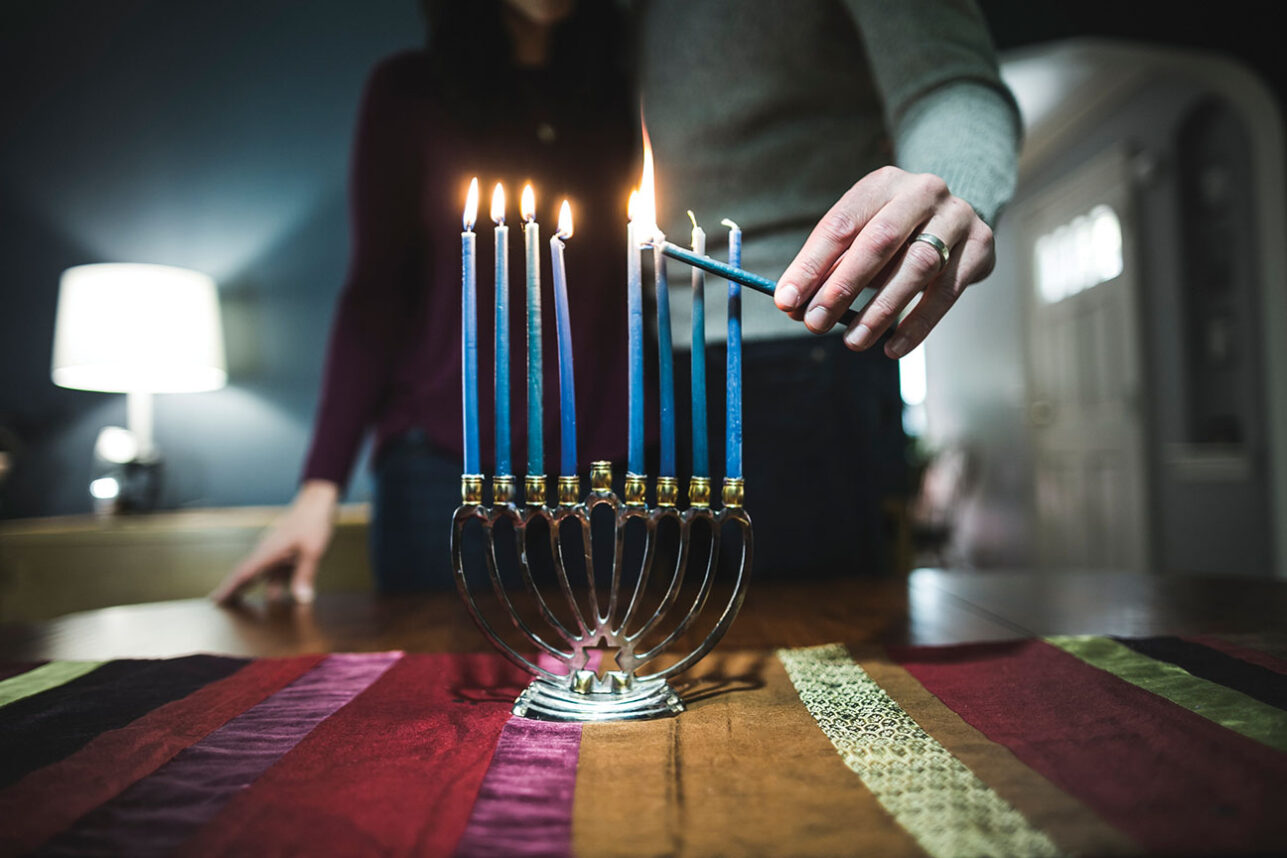
And finally, I invite you to live the vision of our prophet Isaiah, to become truly “a beacon to the nations,” so that in the Judaism we breathe and live and walk, the world will know through us greater light, greater justice, and greater peace.
Rabbi Dr Bradley Artson, a Contributing Writer to the Jewish Journal, is the Abner and Roslyn Dean of the Ziegler School of Rabbinic Studies and Vice President of American Jewish University. He is also Rabbinic Leader for the Abraham Joshua Heschel Seminar, training Conservative/Masorti Rabbis for Europe.

